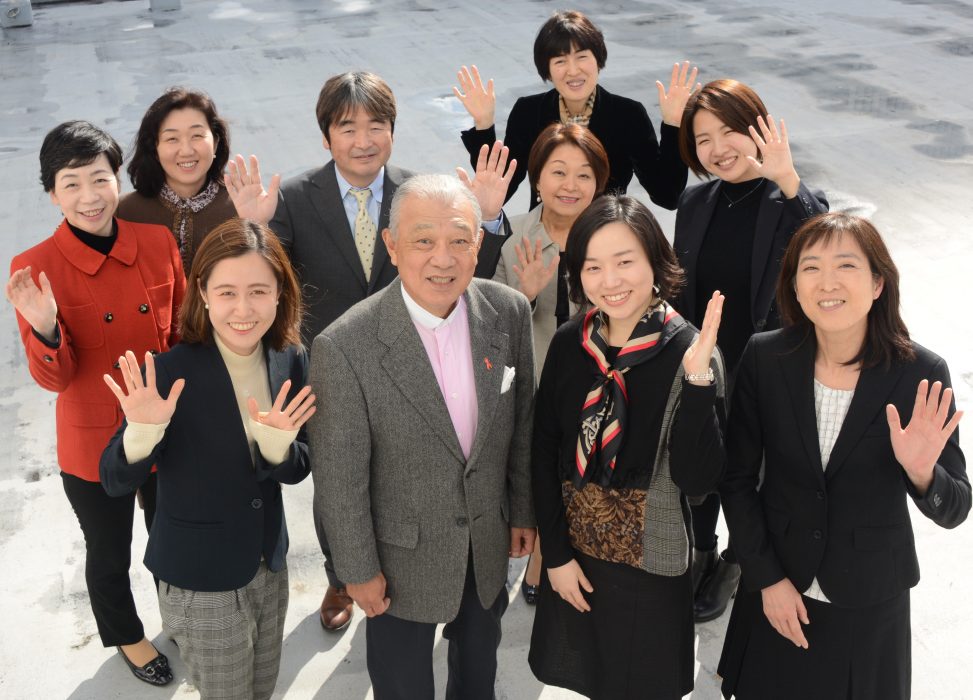Short Article
January 21, 2019
January 21, 2019
January 21, 2019
January 18, 2019
January 16, 2019

January 9, 2019
Members of the Sylff Association secretariat were saddened to learn that Frances Seeds, one of the Sylff program’s very first fellows, passed away in November 2018. She received a fellowship in 1987 while attending the Fletcher School of Law and Diplomacy and worked for many years as one of the top interpreters in Japan.
After graduating from Tufts University’s Fletcher School, where she received a master’s degree in international relations, Seeds became a Japanese-English conference interpreter, working at many important events in both the private and public sectors, including international conferences, negotiations, and summit meetings. As a fully bilingual speaker of English and Japanese, she was frequently praised for her ability to fully convey the meaning of remarks in both languages.
Her skills were in evidence very recently, when she provided interpretation at the farewell lunch party for the Sylff Leaders Workshop in September 2018. Her poise and masterful rendering of comments by Nippon Foundation President Takeju Ogata and other speakers made a deep impression on all participants.
We are all pained by the sudden news of her passing and feel a deep sense of loss. May her soul rest in peace.
January 8, 2019
January 8, 2019
January 4, 2019
January 4, 2019

December 20, 2018

Sylff Association Chairman Yohei Sasakawa (first row, second from left), flanked (from left) by Aya Oyamada, Yue Zhang, and Yoko Kaburagi (director); (second row, from left) Sanae Oda (executive director), Yumi Arai, Keita Sugai, Mari Suzuki (director), Misa Tanaka, and Tomoko Yamada (behind Mari).
The Sylff Association secretariat was pleased to receive news of challenging initiatives undertaken by current and graduated fellows from all over the world in 2018.
The year also saw a significant strengthening of support programs offered by the Association. In September, an inaugural group of 20 fellows participated in the fall session of the Sylff Leaders Workshop, held in Sasayama and Tokyo. A fellow from South Africa became the second recipient of a Sylff Project Grant. And Local Association Networking Support events were held in India, New Zealand, Mexico, and Kenya, enabling participants at these four gatherings to meet fellows from different years.
In June, the twenty-fifth anniversary of Sylff in China was celebrated with a symposium in Beijing, attended by some 200 current and graduated fellows from 10 Sylff institutions in the country. Separate anniversary events were hosted by five Chinese institutions this year.
FROM THE SYLFF WEBSITE 2018
Feb 28, 2018
Launch of “Sylff Leaders Workshop” in Japan: An Opportunity to Interact with Fellows from across the Globe
https://www.sylff.org/news_voices/24232/
Jun 26, 2018
Sylff Leaders Workshop: Update
https://www.sylff.org/news_voices/24804/
Aug 8, 2018
Sylff Leaders Workshop: Selection Outcome
https://www.sylff.org/news_voices/25048/
Nov 16, 2018
Fall Session of Sylff Leaders Workshop 2018–19
https://www.sylff.org/news_voices/25429/
Sylff Project Grant
Dec 12, 2018
Second Sylff Project Grant Awarded for Early Childhood Development Initiative
https://www.sylff.org/news_voices/25624/
Sylff Disaster Relief Fund
Mar 12, 2018
Colmex: Supporting Earthquake Victims with Help from the “Sylff Disaster Relief Fund”
https://www.sylff.org/news_voices/24264/
Sylff Research Abroad
Apr 20, 2018
SRA Awardees for Fiscal 2017, Second Round
https://www.sylff.org/news_voices/24474/
Apr 26, 2018
Sylff Research Abroad 2018 Open!
https://www.sylff.org/news_voices/24574/
Oct 18, 2018
SRA Awardees for Fiscal 2018, First Round
https://www.sylff.org/news_voices/25300/
Sylff Leadership Initiatives
Dec 10, 2018
SLI Awards in 2018: Projects to Stop Violence against Women and to Improve Medical Injury Responses
https://www.sylff.org/news_voices/25619/
25th Anniversary of Sylff in China
Aug 31, 2018
Sylff’s Silver Jubilee in China (1): Milestone Administrators Meeting in Beijing
https://www.sylff.org/news_voices/25166/
Aug 31, 2018
Sylff’s Silver Jubilee in China (2): 25th Anniversary Ceremony and Commemorative Symposium
https://www.sylff.org/news_voices/25174/
Aug 31, 2018
Sylff’s Silver Jubilee in China (3): Four Universities Celebrate 25th Anniversary
https://www.sylff.org/news_voices/25185/
New Financial Scheme
Five institutions signed Agreements to join the new financial scheme in 2018: Charles University, University of the Western Cape, University of Latvia, Gadjah Mada University, and Utrecht University. Eighteen institutions now operate the Sylff program under the new scheme. Click here for details.
Sylff@Tokyo
Sep 21, 2018
Visit by China Fellow Guo Xuetang
https://www.sylff.org/news_voices/25261/
Nov 27, 2018
Visit by Comenius Fellow Tomas Michalek
https://www.sylff.org/news_voices/25554/
Nov 29, 2018
Visit by China Fellow Professor Mei Jianming
https://www.sylff.org/news_voices/25576/
Dec 18, 2018
Keio Fellow Charts Path toward a More Resilient Society
https://www.sylff.org/news_voices/25687/
Sylff Association Secretariat
Mar 16, 2018
New Sylff Association Logo
https://www.sylff.org/news_voices/24304/
Mar 30, 2018
Tokyo Foundation’s New Name
https://www.sylff.org/news_voices/24371/
Jun 27, 2018
Sylff Association Brochure Renewal
https://www.sylff.org/news_voices/24849/
Jun 27, 2018
Sixth “Voices” Booklet Now Online and in Print
https://www.sylff.org/news_voices/24783/